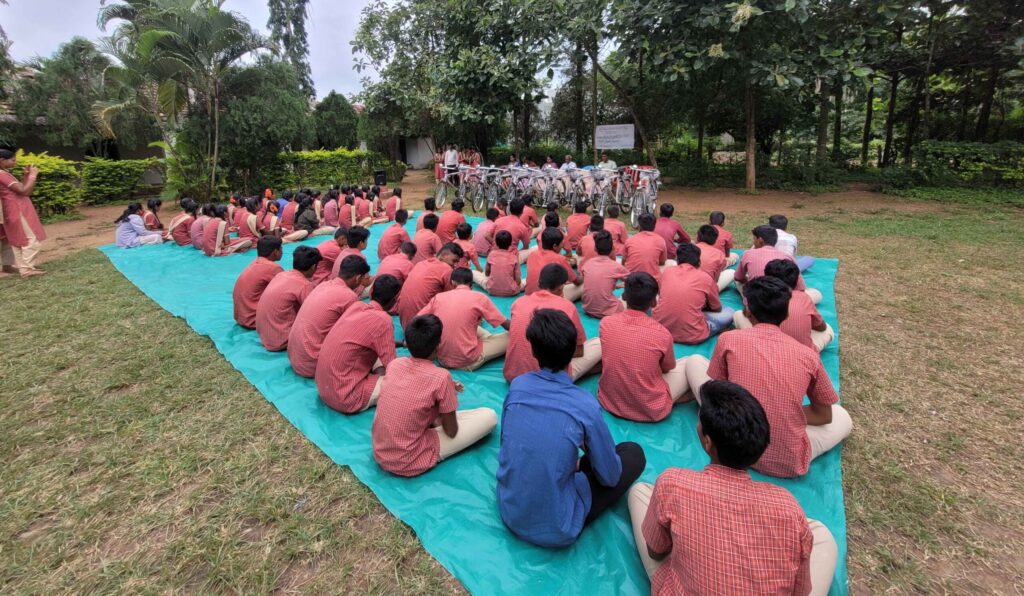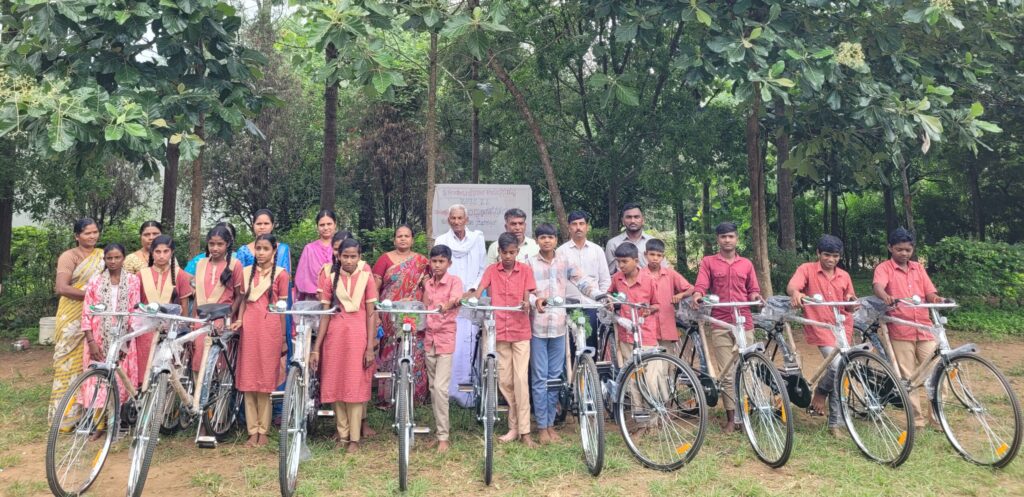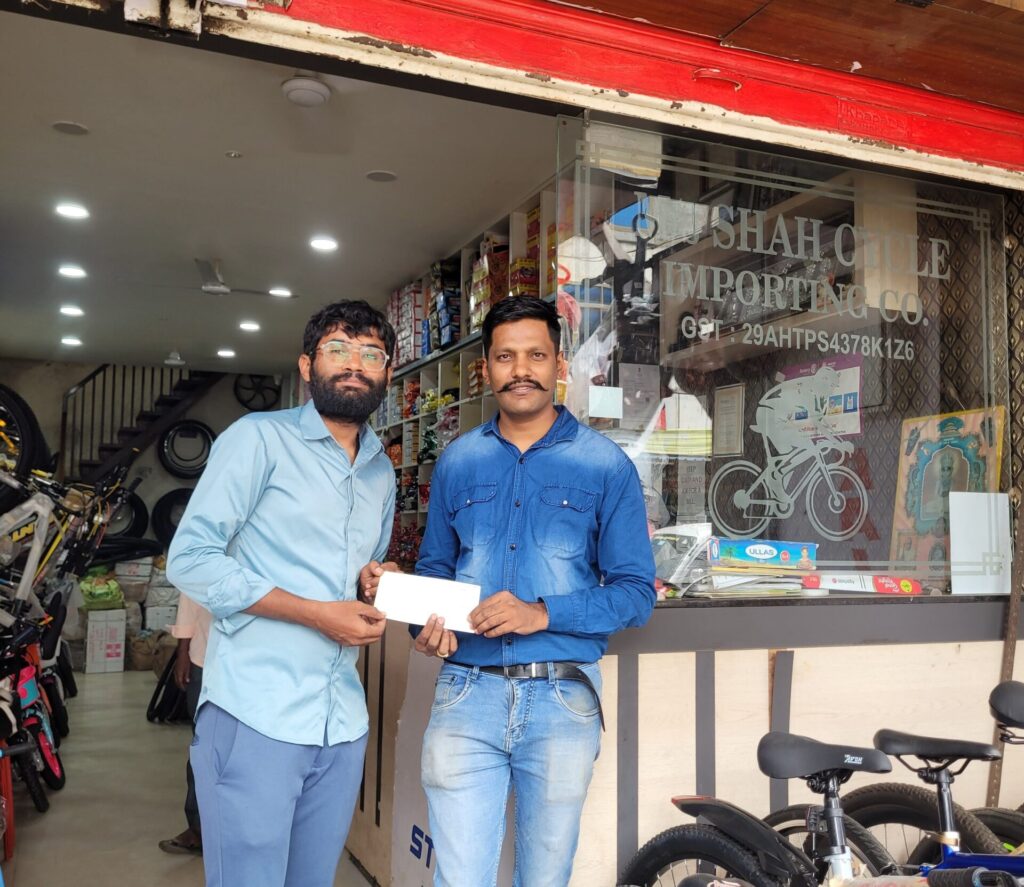The Cycle Bank is a pilot project at Sri Kariambha High School, Kariyammanahatti, designed to remove transport barriers and keep students in class. Eligible students receive a working bicycle at admission and return it when they graduate or take a transfer certificate. Returned cycles are checked, repaired if needed, and reissued to the next eligible
All bicycles remain the property of Sudarshan Sanchari Foundation under a formal MoU with the school.
On completion/transfer, cycles return to Foundation custody. No cycle stays with a student after studies.
Basic care: safe parking, regular cleaning, keeping tires inflated, and reporting issues promptly.
Routine servicing and minor repairs are the responsibility of the student/family.
If a family genuinely cannot afford essential service, the Foundation may assist on a case-by-case basis (not a blanket promise).


Inspect every returned cycle; carry out minor repairs and safety checks before reissue.
Maintain an asset register (serial number, student ID, issue/return dates).
Conduct basic road-safety and cycle-care orientation at the start of each term.
Issue: Working condition cycle provided at admission based on need and commute distance.
Use: Student uses it daily and handles routine upkeep; reports problems quickly.
Return: On TC or graduation, cycle is returned to school and logged.
Refurbish: Foundation services minor issues; average refurbishment cost up to ₹1,000.
Reissue: The same cycle is allocated to another student, maximizing the life of each asset
Volume pricing: The Foundation currently procures Tata Stryder Guru-type models at approximately ₹5,850–₹5,912 per unit (inclusive of delivery), which is typically lower than individual retail prices that may be around ₹8,000.
Pooled impact: Direct monetary donations let the Foundation bulk-purchase, cover essential spares, and fund refurbishments, stretching each rupee further.
Zero waste: Funds also support the refurbish-and-reuse loop so cycles serve multiple cohorts over several years.

Welcomed: Working-condition bicycles are gratefully accepted.
Checks: Donated cycles are inspected; if safe with minor repairs, they are refurbished and reissued to students in need.
Not all accepted: Cycles beyond repair or unsafe will not be issued; parts may be salvaged when possible.
The Foundation does not take blanket responsibility for all ongoing services of cycles in use.
Students/families handle routine maintenance and minor fixes.
Hardship support may be provided for essential repairs after assessment.
Pilot in progress with 16 cycles issued to high-need students.
Goal for this school: build a 100-cycle fleet to ensure reliable access for each new cohort.
Expansion: After achieving 100 and reviewing attendance, punctuality, and reuse metrics, the model may expand to other schools.
Asset register with issue/return logs and serial numbers.
Periodic inspections and safety checks to keep cycles roadworthy.
Clear return mandate and custody protocols to prevent loss and ensure proper use.
Improved daily attendance and punctuality.
Reduced commute time and fatigue, better readiness for first-period learning.
Higher asset utilization via refurbish-and-reuse, minimizing waste and maximizing donor value.
Donate Money: Enables bulk purchase at discounted rates and funds refurbishments—highest impact per rupee.
Donate a Cycle: Working-condition bicycles accepted; we will refurbish and reissue to students in need.
Volunteer: Mechanics and cycle shops can support periodic servicing clinics; content creators can help document progress and stories.